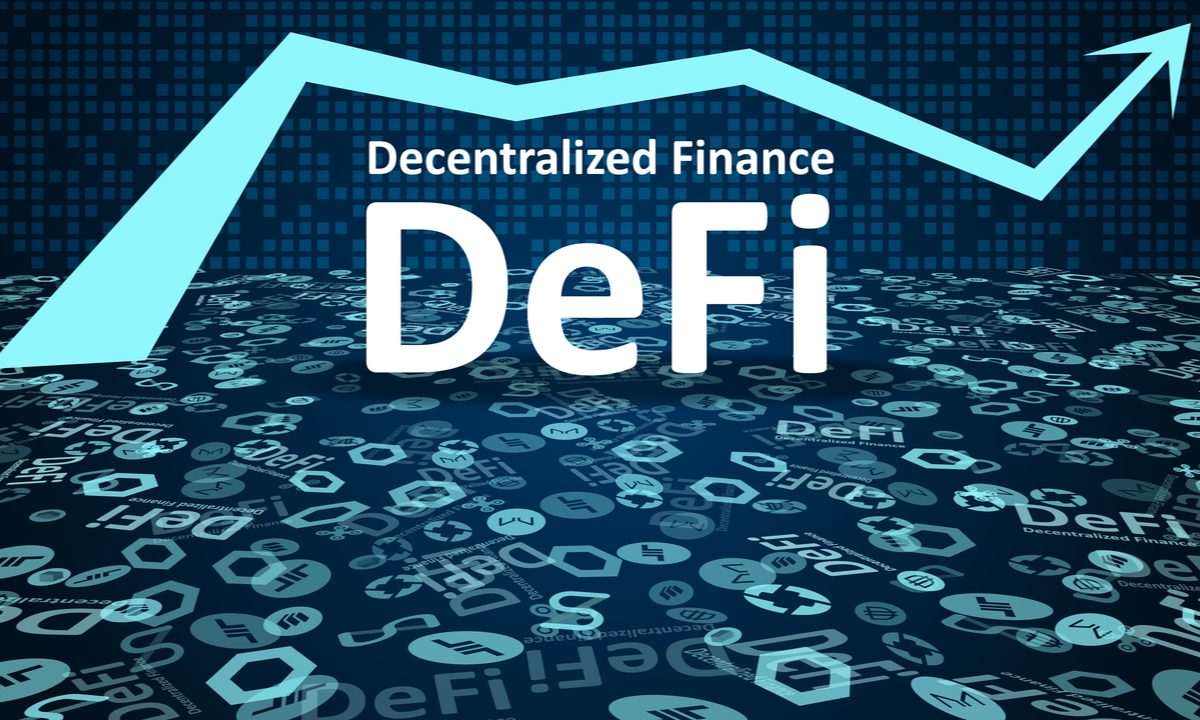Introduction
Open banking is a financial innovation that has revolutionized the traditional banking landscape by allowing customers to share their financial data securely with third-party providers through the use of application programming interfaces (APIs). This sharing of data has given rise to open banking ecosystems, which consist of a network of interconnected services provided by different financial institutions and fintech companies. In this article, we will explore the benefits and opportunities that open banking ecosystem exposed services allow.
The concept of open banking has gained significant traction in recent years due to its potential to foster innovation, improve financial services, and enhance customer experiences. By granting customers the ability to share their financial data, open banking enables the development of personalized products and services, increases competition, and enhances data privacy and security. Furthermore, it encourages collaboration between traditional financial institutions and fintech startups, leading to unparalleled innovation in the financial sector.
Through the use of open banking ecosystem exposed services, financial institutions and fintech companies can leverage customer data to deliver more tailored and efficient financial services. By allowing third-party providers to access customer financial information, these services can analyze spending patterns, offer personalized recommendations, and provide real-time financial insights. This level of personalization not only improves the overall customer experience but also helps customers make more informed financial decisions.
Moreover, open banking ecosystem exposed services foster increased competition within the financial industry. With the advent of open banking, customers are no longer limited to the services provided by their traditional banks. They now have access to a range of new offerings from third-party providers, including digital banks, peer-to-peer lending platforms, and robo-advisors. This increased competition compels traditional banks to innovate and improve their services to retain their customer base.
Improved Financial Services
One of the significant benefits of open banking ecosystem exposed services is the ability to enhance financial services provided to customers. By leveraging customer data shared through APIs, financial institutions and fintech companies can gain comprehensive insights into customers’ financial behaviors, enabling them to develop more targeted and personalized services.
For instance, with access to transaction data, financial service providers can analyze spending patterns and provide personalized budgeting and expense tracking tools to help customers manage their finances more effectively. They can also utilize this data to offer tailored lending solutions, such as personalized loan offers based on credit history and financial health.
Furthermore, open banking exposed services facilitate seamless integration between different financial platforms and services. This integration enables customers to have a holistic view of their financial activities across multiple accounts and institutions, eliminating the need to log in to multiple platforms. Consolidated financial data empowers customers with real-time insights, enabling them to make more informed financial decisions.
Additionally, open banking ecosystem exposed services allow for faster and more efficient payment processes. Through the use of APIs, customers can authorize payments directly from their bank accounts to third-party providers, streamlining transactions and reducing the need for cumbersome payment methods. This not only improves convenience for customers but also enables businesses to offer more seamless and frictionless payment experiences.
Moreover, the use of open banking exposed services has the potential to enable new financial innovations. By collaborating with fintech startups, traditional financial institutions can leverage their expertise in areas such as artificial intelligence, machine learning, and blockchain technology. This collaboration can lead to the development of innovative financial products and services that were previously unimaginable, catering to the evolving needs and preferences of customers.
Enhanced Customer Experience
Open banking ecosystem exposed services play a crucial role in enhancing the overall customer experience in the financial sector. By providing customers with access to a wider range of financial products and services, open banking promotes choice and flexibility. Customers are no longer limited to the offerings of their traditional banks but can explore and take advantage of the best services available in the market.
One of the key ways in which open banking enhances customer experience is through the development of personalized products and services. By leveraging customer data shared through APIs, financial institutions and fintech companies can gain insights into their customers’ preferences and behaviors, allowing for tailored recommendations and customized offerings. This level of personalization helps customers find products and services that align with their specific needs and financial goals.
Additionally, open banking ecosystem exposed services allow for seamless and convenient access to financial information and services. Through integrated platforms and APIs, customers can easily view and manage their financial accounts, make payments, and track transactions across multiple providers, all in one place. This eliminates the need to navigate different platforms, remember numerous login credentials, and manually input financial data, saving time and effort for customers.
Furthermore, open banking promotes transparency by giving customers greater visibility into their financial data. With easy access to their transaction history and account information, customers can monitor and analyze their spending habits, identify areas for improvement, and make informed financial decisions. This transparency builds trust between customers and financial service providers, fostering a more positive and collaborative relationship.
Another aspect of enhanced customer experience enabled by open banking is the seamless integration of financial services with other digital tools and platforms. Through APIs, financial institutions can integrate their services with popular apps and platforms used by customers, such as budgeting apps, e-commerce platforms, and accounting software. This integration provides a more holistic and seamless experience for customers, allowing them to manage their finances within the context of their daily lives.
Access to Personalized Products and Services
Open banking ecosystem exposed services bring forth a new era of personalized financial products and services. By leveraging customer data shared through APIs, financial institutions and fintech companies can gain a deeper understanding of their customers’ financial behaviors and preferences, allowing them to develop tailored offerings that cater to individual needs.
One of the ways in which open banking enables personalized products and services is through targeted recommendations. By analyzing customer transaction data and financial patterns, financial service providers can offer personalized product suggestions based on individual preferences and goals. For example, a customer who frequently travels abroad may receive recommendations for credit cards with low foreign transaction fees or travel insurance plans that meet their specific needs.
Furthermore, open banking allows for the creation of personalized savings and investment solutions. With access to customer financial information, financial institutions can offer savings accounts and investment portfolios tailored to customers’ risk profiles, investment objectives, and available funds. This personalized approach ensures that customers have access to products and services that align with their financial goals and overall financial well-being.
Open banking also facilitates the development of personalized credit and lending solutions. By analyzing customer credit history and financial data, financial service providers can offer personalized loan options with competitive interest rates, repayment terms, and loan amounts. This personalized approach not only increases the likelihood of loan approval but also ensures that customers receive loans that are suitable for their specific financial circumstances.
In addition to personalized product offerings, open banking exposed services enable more customized user experiences. With the integration of APIs, financial institutions can offer user interfaces and experiences that are tailored to individual customer preferences. For example, customers may have the ability to customize their dashboard, choose the types of notifications they receive, or even select their preferred language and currency. These personalized user experiences enhance customer satisfaction and make interacting with financial services more intuitive and user-friendly.
Overall, open banking provides customers with access to a wide range of personalized financial products and services that cater to their unique needs and preferences. By leveraging customer data, financial institutions can offer solutions that are tailored to individual circumstances, enhancing the overall customer experience and increasing customer satisfaction.
Increased Competition
Open banking ecosystem exposed services have fueled a wave of increased competition within the financial industry. Prior to open banking, customers were often limited to the services provided by their traditional banks, with limited choices and little incentive to switch to another provider. However, the emergence of open banking has revolutionized this landscape by giving customers access to a wide array of financial products and services offered by both traditional financial institutions and innovative fintech companies.
This increased competition has several benefits for customers. First and foremost, it leads to better pricing and improved product offerings. As financial institutions compete to attract and retain customers, they are motivated to offer more competitive interest rates, lower fees, and better terms and conditions. Customers can take advantage of this competition to secure the best deals and maximize the value they receive from their financial service providers.
Moreover, increased competition drives innovation within the industry. Traditional financial institutions are now compelled to enhance their digital services, introduce new features, and improve customer experiences to stay competitive with fintech startups. This innovation benefits customers by providing them with access to cutting-edge technologies, intuitive user interfaces, and seamless integration with other digital platforms.
Open banking also promotes competition by lowering barriers to entry for new players in the financial industry. Fintech startups can now leverage open banking APIs to build innovative financial products and services without the need for establishing their own banking infrastructure. This encourages new entrants, fosters innovation, and enhances competition, resulting in a wider range of financial offerings and increased customer choice.
Furthermore, open banking facilitates comparison shopping. With access to a wide range of financial services, customers can easily compare offerings from multiple providers, evaluating factors such as interest rates, fees, and features. This transparency empowers customers to make informed decisions and choose the products and services that best suit their needs and preferences. As a result, financial service providers are incentivized to differentiate themselves and offer competitive offerings to attract and retain customers.
Overall, the increased competition brought about by open banking ecosystem exposed services benefits customers by driving better pricing, fostering innovation, empowering comparison shopping, and increasing customer choice. This competitive environment encourages financial institutions to continuously improve and provide superior services, ultimately benefiting customers in their financial journey.
Data Privacy and Security
Data privacy and security are paramount concerns in the financial sector, and open banking ecosystem exposed services prioritize the protection of customer information. With the sharing of financial data through APIs, it is crucial to implement robust security measures and strict data protection standards to ensure the confidentiality and privacy of customer information.
Open banking promotes the principle of data minimization, where only necessary customer data is shared with third-party providers. This means that financial institutions and fintech companies only have access to the specific data required to provide the requested services, reducing the risk of unauthorized access to sensitive information. Additionally, open banking APIs often utilize encryption methods to safeguard data during transmission, ensuring that it remains secure and protected from interception.
Furthermore, open banking enforces strong data access controls and consent mechanisms. Customers have full control over the data they choose to share with third-party providers and can revoke consent at any time. This gives customers the ability to manage and control the flow of their financial data, enhancing their confidence in sharing information and promoting transparency.
Financial institutions and fintech companies that participate in open banking are subject to stringent privacy and security regulations, such as the General Data Protection Regulation (GDPR) in the European Union. These regulations mandate strict data protection measures, including the implementation of privacy policies, consent management, data breach notification protocols, and regular security audits. Compliance with these regulations ensures that customer data is handled securely and responsibly.
Moreover, open banking encourages the use of secure authentication methods and multi-factor authentication to protect customer accounts and transactions. Strong authentication protocols, such as biometric authentication or one-time passwords, add an extra layer of security, reducing the risk of unauthorized access to customer accounts.
Additionally, open banking promotes proactive monitoring and detection of suspicious activities. Financial service providers implement advanced fraud detection and prevention systems that analyze customer transaction data and behavior patterns to identify and flag any abnormal or fraudulent activities. Timely detection and response to potential threats help protect customer accounts and minimize the impact of security breaches.
In summary, open banking ecosystem exposed services prioritize data privacy and security through data minimization, encryption, consent management, and compliance with strict regulations. The use of secure authentication methods and proactive monitoring further enhances the safety of customer information. By adopting these measures, financial service providers ensure that customer data is protected and build trust with customers in the open banking ecosystem.
Innovation and Collaboration
Open banking ecosystem exposed services have not only revolutionized the financial industry but have also fostered a culture of innovation and collaboration among traditional financial institutions and fintech startups. By enabling seamless integration and sharing of data through APIs, open banking drives unprecedented levels of innovation in product development, technology adoption, and customer experience.
One way in which open banking promotes innovation is by allowing traditional financial institutions to tap into the expertise and agility of fintech startups. Collaboration between banks and fintech companies leads to the development of innovative financial products and services that cater to the evolving needs of customers. For example, traditional banks can integrate fintech-powered personal finance management tools that provide customers with insights into their spending habits and help them achieve their financial goals.
Furthermore, open banking exposes financial institutions to a broader ecosystem of ideas and technologies. By partnering with fintech startups, traditional banks can leverage emerging technologies such as artificial intelligence, machine learning, and blockchain to streamline operations, enhance risk management, and improve customer experiences. These collaborations result in the delivery of cutting-edge financial solutions that were previously unimaginable.
Open banking also stimulates innovation by encouraging competition among financial service providers. Faced with increased competition from fintech startups, traditional banks are incentivized to innovate and improve their services to retain existing customers and attract new ones. This competition drives financial institutions to adopt new technologies, create more user-friendly interfaces, introduce innovative payment methods, and develop personalized financial solutions, ultimately benefiting customers.
Additionally, open banking ecosystem exposed services provide a fertile ground for experimentation and piloting new ideas. Financial service providers can leverage APIs to test and launch new products or features in a controlled environment, gathering user feedback and iterating on their offerings. This iterative approach enables faster innovation cycles, allowing financial institutions to respond to changing customer demands and market trends more effectively.
Moreover, open banking facilitates collaboration between different sectors and industries. With APIs enabling seamless integration, financial institutions can collaborate with companies in industries such as retail, travel, and healthcare to offer innovative financial solutions. For example, a retail company may integrate its loyalty program with a bank’s API, allowing customers to earn and redeem rewards seamlessly at the point of sale.
In summary, open banking ecosystem exposed services foster innovation and collaboration within the financial industry. By promoting collaboration between traditional financial institutions and fintech startups, encouraging competition, and enabling experimentation, open banking drives the development of innovative financial products and services that enhance customer experiences and meet the evolving needs of the market.
Conclusion
Open banking ecosystem exposed services have revolutionized the financial industry by enabling secure sharing of customer data and fostering collaboration between traditional financial institutions and fintech startups. This new era of banking brings numerous benefits and opportunities for both customers and financial service providers.
Improved financial services are a key outcome of open banking, as customer data shared through APIs allows for the development of personalized products, streamlined payment processes, and seamless integration between different financial platforms. This level of personalization enhances the overall customer experience by providing tailored solutions and empowering customers to make informed financial decisions.
Access to personalized products and services is another significant advantage of open banking ecosystem exposed services. With deeper insights into customer data, financial institutions and fintech companies can offer tailored recommendations and customized offerings that cater to individual needs and preferences. This access to personalized financial solutions enhances customer satisfaction and helps customers achieve their financial goals.
The increased competition resulting from open banking drives innovation in the financial industry. Traditional banks are motivated to enhance their digital services and offer improved products to compete with fintech startups, leading to better pricing and more innovative offerings. Customers benefit from a wider range of financial products and services that are designed to meet their evolving needs and preferences.
Data privacy and security are paramount in the open banking ecosystem. Robust security measures, strict data protection regulations, and transparent consent mechanisms ensure that customer information is handled securely and responsibly. The use of secure authentication methods and proactive monitoring further safeguards customer data against unauthorized access and fraudulent activities.
Innovation and collaboration are also key outcomes of open banking. The integration and collaboration between traditional financial institutions and fintech startups drive the development of cutting-edge financial solutions and the adoption of emerging technologies. This fosters a culture of innovation and improves the overall customer experience.
In conclusion, open banking ecosystem exposed services have transformed the financial industry by enabling personalized financial solutions, driving competition and innovation, and prioritizing data privacy and security. As the open banking landscape continues to evolve, it holds immense potential to further enhance customer experiences, revolutionize financial services, and drive the future of banking.

























